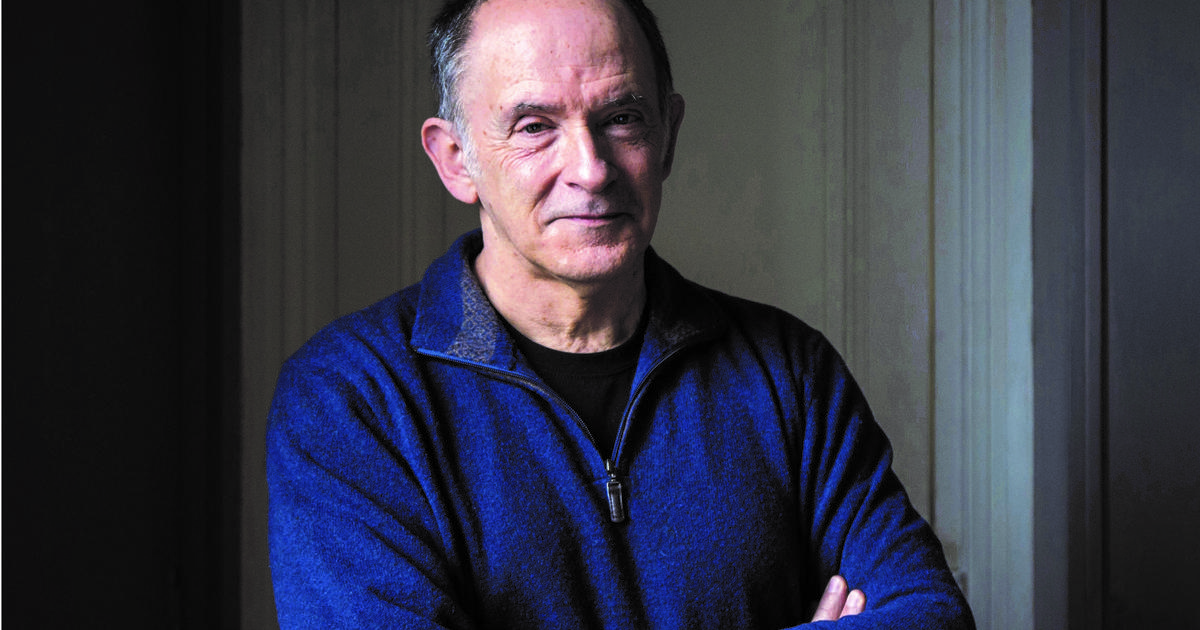Sophisticated construction, sustained pace, characters struggling in a world in decline: between
The Road,
by Cormac McCarthy, and
Station Eleven
, by Emily St. John Mandel, the postapocalypse novel by Hervé Le Corre grabs you and never lets you go .
It unfolds the trajectories of Rebecca and her daughter, Alice, still a baby, in France at the end of the 20th century, after the electricity network collapsed, and the fight of subsequent generations in a universe prey to barbarism .
To discover
Podcast
> Gwyneth Paltrow: the strange guru from the Upper East Side
The keys to supporting women in their working lives
Download the Le Figaro Cuisine app for tasty and authentic recipes
Also read: David Foenkinos: “I had a near-death experience with the famous tunnel”
Madame Figaro. –
What inspired this novel?
Hervé Le Corre.
– What is happening to us at the moment: climate change, pandemics, the risk of cascading disasters, as well as the image of a world which is becoming very dangerous geopolitically speaking, with increasingly violent regimes which do not respect not international law – just look at the weakness of the UN.
Everything that makes me think and worries me, but also the absence of an alternative, has fueled my desire to tell the story afterward.
Writers capture the spirit of the times and throw it at a cold window, and the fog produced is the novel.
The Freudians spoke of condensation for dreams.
Why did you highlight a lineage of women?
I haven't thought about it in those terms.
In fact, I became attached to the characters of Rebecca and little Alice, and I wanted to tell the story of their descendants.
How were they going to get by in this country that was falling apart?
I wanted them to be strong, armed, I refused to assign them the status of victims who must be protected and defended.
Women are, however, the first to suffer in times of war... And at the same time, when it comes to rebuilding, even if it's just building a wood fire over which to hang a battered bowl, they are the ones who stick to it.
You are a big name in noir novels. What attracts you to this genre?
Readings, first of all, by great authors, from Jean Vautrin to Jean-Patrick Manchette, who gave me a taste for style, like the desire to talk about the world in which I live.
However, I am wary of committed novels, and I try to get rid of any didacticism.
I don't do feature novels;
I write books, and it turns out that they are black because of their genre and the vision of existence that they develop… A good novel is first of all a text that asks questions;
in my case, on our relationship to violence and the lame progress of the world.
Writers capture the spirit of the times and throw it on a cold window, and the fog produced is the novel
Hervé Le Corre
Is this why you write?
By paying close attention to what surrounds us, we can do the work of an investigator, a journalist or a historian.
That's not my way of doing things.
Above all, I like to tell stories.
As Sartre said about Flaubert, to write novels, you have to be the idiot of the family... I write to keep the right distance from things.
Rimbaud, for his part, spoke of “fixing dizziness.”
We can be dizzy by the spectacle of the world.
Writing allows you to restore some order, to freeze a situation in order to better examine it;
that's what I'm trying to do.
His private collection
Revival
of Jean Giorno.
“
I read it at 14, and I discovered a style, new metaphors… We were no longer in well-written but in real writing.”
One Hundred Years of Solitude,
by Gabriel García Márquez.
“A great humanist and baroque poem, the book of all possible narratives.”
Fay
, by Larry Brown.
“A capital noir novel, a great book that goes beyond the boundaries of the genre.
And a superbly modest love story.”
Sympathy for the Devil
, by Kent Anderson.
“War as I had never read it, a book full of savagery and poetry, which says it is in the face of violence.”
“Who after we will live”, by Hervé Le Corre, Éditions Rivages, 400 p., €21.90.
Press photo

